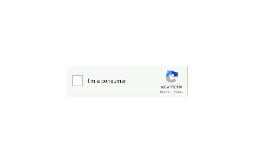Consumer first; Citizen second


Great video. I actually bought the domain opensource.rip a few weeks ago, just to list the affected projects and explain exactly what jeff geerling did here. Haven't started it yet, and I'm mostly commenting just to make myself commit to the idea.
Intending to create a static site with Zola, lmk if you wanna contribute. Submitting information like I asked for in the following post would already help me out :)
This reminds of a stupid filesystem pet idea I had a while ago. Running as a daemon, it walks through your filesystem and sometimes leaves traces (as files), maybe you'll find it sleeping in your downloads folder every now and then. I thought it was a cute idea, but didnt actually think about implementing it, for obvious reasons, it could go so horribly wrong 😂
Most email providers will automatically put emails coming from .xyz to spam. I'd advise against using any "new TLDs", if you can. But if you must, avoid those that are frequently used for spamming. A lot of spam detectors will already score your emails as suspicious just for the TLD.
See for example, https://github.com/apache/spamassassin/blob/trunk/rulesrc/sandbox/pds/20_ntld.cf
I mostly agree with your comment. And you are absolutely not 'victim-blaming'. I think some might mistake your stance with a 'vote with your wallet' sentiment, but I interpret your comment about 'fighting back' as more than that.
Obviously, it is better to seek out the better options as a consumer, but that is not enough. People are not stupid for not seeking out alternatives, when the game is rigged against them in the first place. Fighting back also means trying to unrig the game. How one is supposed to achieve that is a question that I don't have a satisfying answer for. I for myself, started by educating myself, by becoming more vocal about the defects of the status quo, and by advocating for change. It's not a lot, but it can reach into your circle of friends. I attempted to reach a bit further with this blog post, even though it might just reach people that don't need any convincing.
In the spirit of trying to make a difference, what are some of the DRM-free options? Let's point people directly to better alternatives :)
I know of libro.fm for audiobooks.
Here are some feeds of individuals from my list:
And I also started a blog myself recently. I'm just some dude though
And there is htmlq too, if you ever need to scrape some stuff from a website :)
I saw your comment 3 months late 😄 In the blog post I actually mention the tragedy of the commons. The problem with the theory is that it is only applicable in fixed empirical settings. For this reason, I think it is quite dangerous to apply this theory generally. It is actually a key ingredient in neoliberal economics, where it is argued that privatization of commons is necessary, because they are tragic. I had to unlearn this notion myself. I recommend the book 'Governing the Commons' by Elinor Ostrom on the topic, it's a collection of case studies which shows that commons are only tragic under certain preconditions.
Sorry, I missed that this thread started on the topic of ebooks. To be honest, I don't fully understand the connection you are making to the tragedy of the commons when it comes to DRM. I think I understand what you mean, if you are arguing on top of DRM, but DRM is itself already a tool of enclosure. So the problem is not really consumer choice, but rather that DRM is allowed in its current form. But I admit that this is a different discussion, I guess in the end we are talking about the same and I agree with you. I think the self organizing part here would be for authors to publish independently, and for people to support independent publishing. But as you implied, that market is already captured to a point where people don't even know about independent publishers/markets. I wouldn't look at that as a tragedy of the commons, where people "selfishly" choose DRM and degrade the underlying resource, rather they are simply consumers of an almost fully enclosed resource.
Glad you find it interesting enough to start reading. The book doesn't necessarily "propose self organizing", although that may be a conclusion one can draw. Rather it showcases different case studies where common pool resources have degraded, and others where they have flourished, and tries to compare the different situations through a few parameters. What I took from it is, that it is pretty safe to say that neither privatization, nor central planning are good "solutions" when it comes to common pool resources, also that it seems important to have some form of rule monitoring and enforcement where actors directly affected by rule-breaking are part of the monitoring. But I should probably read through my highlights again some time, to freshen up my memory :)
Really appreciated your insight.
Yeah, I have not once seen anything of value in their "alternatives", they always show the weirdest shit that has nothing in common with the other. It's been in my Kagi block list from the very beginning, I don't miss those results one bit.


Since you are from Germany, simply say "Die Grünen sind Schuld". Everyone will understand and accept this reason.